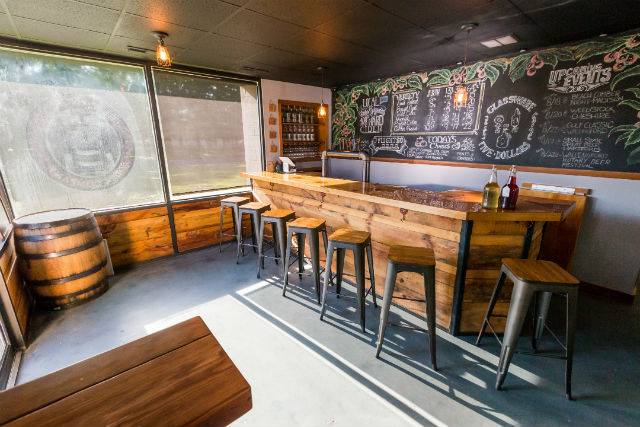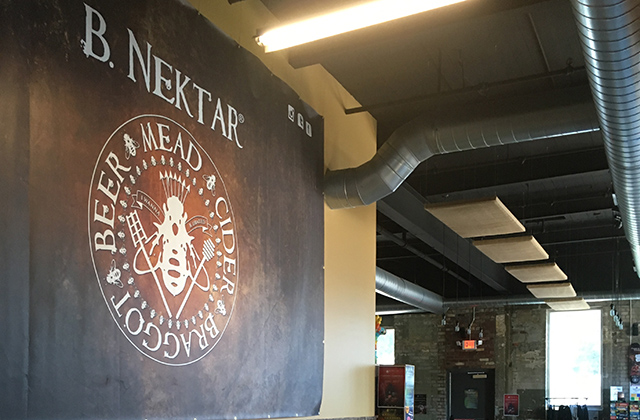
As much as you want to do all you can to prevent any accident from occurring at your brewery, unfortunately, accidents may occur at times. That means properly determining risk management instances and having the right insurance are crucial considerations for any brewery owner as it can ensure your employees and company remain protected from unforeseen events that could jeopardize operations.
Frank Czigler, Vice President and CFO of Czig Meister Brewing, emphasized to Brewer the importance of comprehensive insurance coverage.
“One of our delivery drivers was involved in a vehicle crash with one of our delivery vans a few years ago that involved a passenger injury in the other vehicle,” he said. “The injured person required hospitalization. We immediately reported the accident to our insurance carrier, who then managed the entire case on our behalf, and kept us informed every step of the way. We had our vehicle towed to a reputable repair facility, where it was completely repaired, and we paid the deductible portion of our coverage.”
Czigler considers several types of insurance policies essential for any brewery, including commercial liability (with liquor liability), commercial property, auto, and workers’ compensation. As the New Jersey brewery has grown, so too have its insurance needs, particularly regarding coverage limits.
“With regard to coverage for commercial liability, I would recommend a $1 million coverage with an additional $1 million umbrella policy,” he said. “Medical costs of a single unfortunate injury requiring hospitalization could easily rack up hundreds of thousands of dollars. Most larger liquor store chains and off-site event venues require proof of insurance at the level of $1 million, and many even require $2 million. So as a brewery grows its distribution footprint, you don’t want to be locked out of potentially lucrative accounts due to low insurance coverage.”
Similarly, he stressed the importance of commercial property insurance, urging breweries to conduct self-audits annually to ensure that their coverage remains sufficient.
“You want to make sure that if an unfortunate situation was to occur, like a fire or a breakdown of essential equipment, that your business can recover with minimal risk of unprotected interruption,” he said. “Ask yourself what the replacement cost would be and include a value for loss of inventory due to spoilage and income that you would need to recover to stay in business until the affected building or equipment can be replaced.”
Determining when to file a claim versus handling an issue internally is another key aspect of proper risk management. Czigler advises evaluating three factors in this: whether the issue involves damage to another party, whether an employee injury requires medical attention and extended time off work, and whether the cost of repairs significantly exceeds the deductible.
“Naturally, if the repairs would cost less than the deductible amount, the matter should be handled internally,” he said. “In my opinion, the trigger for me to file a claim would be if the cost to make the repair would exceed at least twice or maybe even three times the insurance policy deductible.
“The man-hours involved in filing and following up, as well as the intangible reputation costs of filing too many claims, would outweigh the cost of simply handling the issue internally.”
Czigler has also learned valuable lessons from managing insurance claims, particularly regarding documentation.
“Make sure you have a system for timely reporting and documenting everything, including an internal incident reporting system, photos when appropriate, and saving security camera footage for future reference,” he said.
Navigating insurer disputes can be challenging. He shared an incident in which a rented warehouse suffered damage due to a leaking roof during repairs. The brewery’s stored materials, including paper goods and can labels, suffered $15,000 worth of damage. Initially, the roofing company refused to cover the costs.
READ MORE: Risk Management: Employee Consumption
“When we indicated that we would make a filing with our insurance carrier, who in turn would use their legal department to recover the compensation, including legal fees involved, they decided to pay out the $15,000 based on our documented proof of the extent of the damage,” Czigler said.
To manage their policies effectively, Czig Meister works with an insurance broker who is a reputable allied trade member of their state brewer’s guild.
“The main benefits are three-fold,” he said. “First, we use their expertise from working with many other craft breweries to help us identify the type and amount of coverage we need. Second, they work with several reputable insurance carriers, so they check the price of our coverage annually to ensure we get the best market price. If a better option exists, our broker seamlessly transitions us to a new carrier.
“Lastly, we have cultivated a strong relationship with our broker, so we know their staff by first names and do not hesitate to reach out for Certificates of Insurance that we frequently need to supply to liquor store chains, restaurants, and off-site event hosts.”
Proper insurance coverage is not just an operational necessity — it is a strategic investment in long-term sustainability. By proactively assessing your coverage, maintaining thorough documentation, and working with knowledgeable brokers, your brewery can mitigate financial risks and ensure you are prepared for unexpected challenges.







Be the first to comment